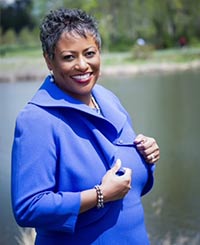Retirement and Adult Children: Supporting family can put a crimp in your strategy
Provided by Pamela J. Sams, CRPC, NABBW’s Retirement Planning Associate
Families are one of the great joys in life, and part of the love you show to your family is making sure that their basic needs are met. While that’s only to be expected from birth through the high school years, many households are helping their offspring well into their twenties and beyond.
However, you may have concerns that your adult children have come to depend on you too much. On the other hand, you may have given more than you planned, to the point where you are dipping into your retirement savings. If that’s the case, you might want to think about how involved you want to be in your children’s financial needs.
How common is this?
An April 2019 Bankrate.com survey of 2,500 Americans indicated 51% of respondents saying that they helped adult children, aged 18 and up, either “somewhat” or “a lot” – specifically drawing from their retirement savings.1
While every household has their reasons to help their adult children, it’s important to keep your retirement strategy on track. It’s not only a matter of replacing the money that you are taking out of retirement accounts or investments, but you’re also losing time. The growth that may occur with investments or compound interest is a phenomenon that happens over decades. In that situation, you can replace the money you took out, but you can’t replace its potential.
Communication is a good first step.
Beyond your own interest, there’s also the young adult in your life to consider. Helping solve a short-term financial problem is one thing, but you also want to offer them an advantage that may help them face a future money squeeze on their own.
It’s also helpful to keep in mind that not all the expenses young adults are incurring are wasteful. CBS News reports that student loan payments may be $400 per month, describing the amount as “typical.” When you factor in rent, utilities, and basic personal expenses, that underlines why the habit of careful budgeting can be so crucial for someone just joining the workforce.1
For that reason, financial education can also be a great gift. There are numerous resources that can help with learning how to budget: books, classes, apps, and more. If you aren’t sure what would work best for the young adult in your life, you can ask your trusted financial advisor for some tips. The skills and knowledge needed to handle money is not instinctual; helping your adult children learn how to better control their financial lives may offer them the confidence to succeed and navigate rough money issues without you, in time.
Pamela J. Sams may be reached at (703) 547-8682 or pamela@jacksonsams.com, or www.jacksonsams.com
This material was prepared by MarketingPro, Inc., and does not necessarily represent the views of the presenting party, nor their affiliates. This information has been derived from sources believed to be accurate. Please note – investing involves risk, and past performance is no guarantee of future results. The publisher is not engaged in rendering legal, accounting or other professional services. If assistance is needed, the reader is advised to engage the services of a competent professional. This information should not be construed as investment, tax or legal advice and may not be relied on for the purpose of avoiding any Federal tax penalty. This is neither a solicitation nor recommendation to purchase or sell any investment or insurance product or service, and should not be relied upon as such. All indices are unmanaged and are not illustrative of any particular investment.
Securities offered through Securities America, Inc., a Registered Broker/Dealer, Member FINRA/SIPC. Advisory services offered through Securities America Advisors, Inc., a SEC Registered Investment Advisory Firm, Pamela Sams, Investment Advisor Representative. Jackson Sams Wealth Strategies, Securities America, Inc. and all other entities named are separate entities.
Citations.
1 – cbsnews.com/news/adult-children-are-costing-many-parents-their-retirements/ [4/25/19]


